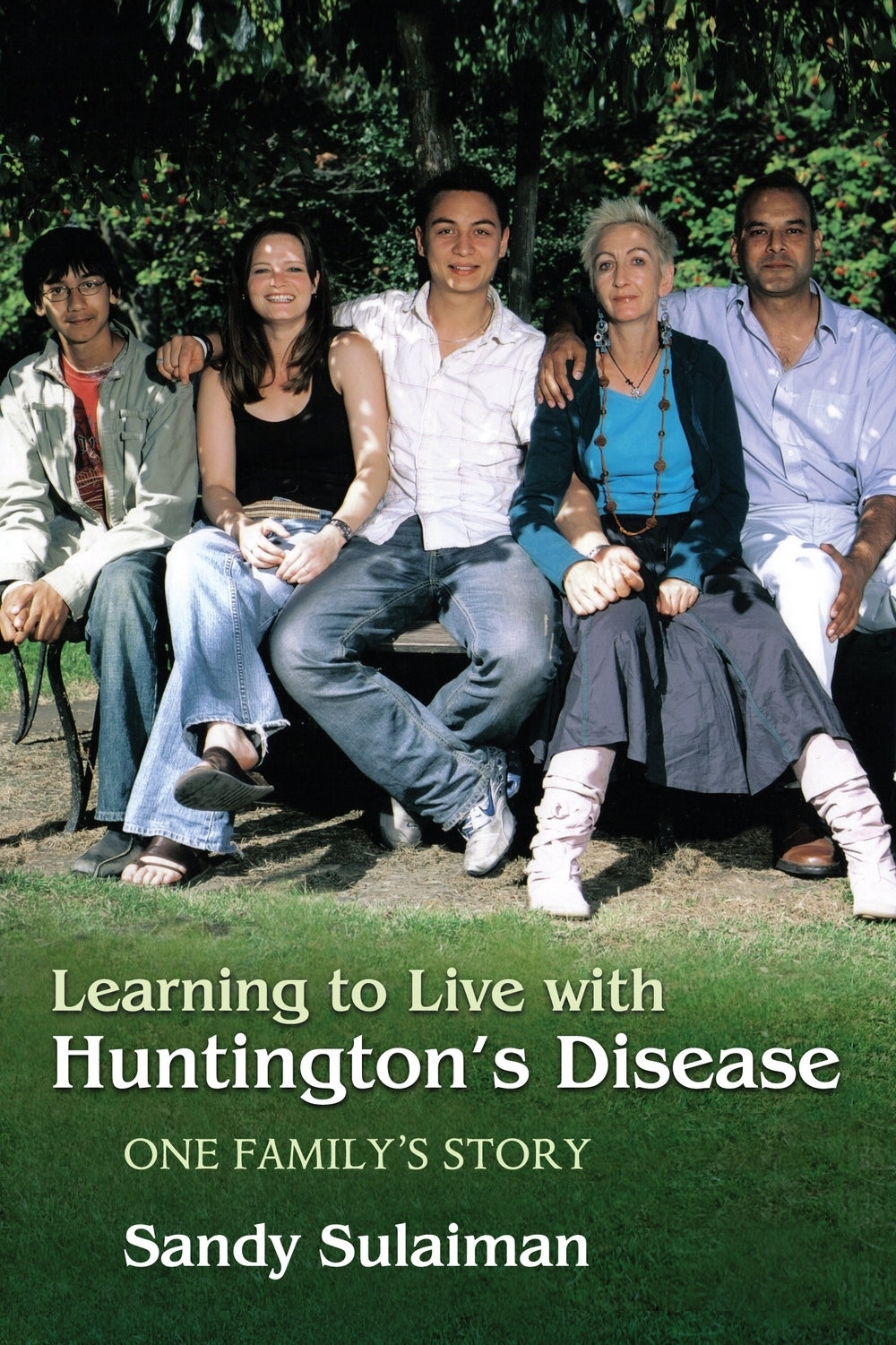
Press Reviews
bionews
`It's as readabale as Cosmo and as informative as a textbook. Funny, harrowing and thought-provoking in equal measure, it should be on the reading list of anyone with the slightest interest or involvement in Huntington's Disease.`
Healthcare Counselling and Psychotherapy Journal, October 2007
Any counsellor might find themselves working with one or more of the six co-authors of this self-help book: Sandy, a journalist in her mid-40s who has Huntington's disease, her second husband; two sons, aged 25 and 15; her daughter-in-law and sister. Their accounts vividly describe the impact of Huntington's disease and their determination to live as fully as they can. Learning to Live with Huntington's Disease highlights feelings and issues relevant to a wide range of situations, especially where secrecy and denial are involved. As I learnt long ago from a young client in a hospice, even if you are free of the gene, nobody in a family with Huntington's disease escapes the illness.
Linchpin, Derian Children's Hospice
Learning to Live with Huntington's Disease is a moving and informative account of one families experience of the condition. The accounts from all the book's contributors describe the emotional issues that can arise from being diagnosed with or having a loved one diagnosed with Huntington's disease, which provides those without first hand experience of living with the condition, some insight into what it is like. This book is very reader friendly, as it avoids complex terminology, making it well tailored for patients, relatives and healthcare professionals. Whilst the content of the book touches upon the cruel realities of living with Huntington's, some parts are quite optimistic and provide advice on ways of coming to terms with the challenges the condition brings.
Jane Paulsen, Professor of Psychiatry, Neurology, Psychology and Neurosciences, The Carver College of Medicine, The University of Iowa
Remarkable! These "stories from the heart" are able to penetrate even the thickest of fogs that accumulate during the dark times in life. Profound personal insight is shared in a way that challenges all of us to work through the pain and isolation that accompanies stress to build a life worth living. I recommend this work of hope to everyone... HD families, health care workers, scientists, as well as the parents, siblings, spouses, and friends of all who face a health challenge. The candid stories offer distinct perspectives on living from many vantage points, be it the person with a terminal illness, the “lucky” survivor, the parent, the spouse, or the child. This family inspires us all to examine our “broken edges” as a means to healing, hope and strength. The prose depicts the clinical phenotype of Huntington's disease with a candor reminiscent of Oliver Saks' neurological teachings. Key components of the disease such as denial, unawareness, depression, motor unpredictability, the childhood capacity for coping, individual differences in addressing the unknown, and mindfulness are depicted with clarity. The reader is encouraged to “think outside of the box” when faced with apparent somber consequences. For instance, when forced to give up her independence via her drivers' license, Sandy brilliantly rekindles an old love and develops equine physiotherapy to safely exercise and revisit independence. I can't thank you all enough for the uplifting read I have had today—my week, and perhaps my year of work in HD, will certainly be better for it.
Richard Branson
This is a moving true story of how people can find the inner strength to rise above it when their world is turned upside down.
